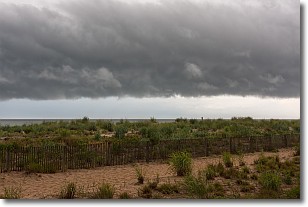Weather Alert in Washington
Fire Weather Watch issued August 11 at 1:53PM PDT until August 13 at 11:00PM PDT by NWS Spokane WA
AREAS AFFECTED: Foothills of Northeast Washington; Colville Reservation; Okanogan Valley; Methow Valley; Central Washington Cascade Foothills; Waterville Plateau; Western Columbia Basin; Eastern Columbia Basin / Palouse / Spokane Area; Lower Palouse / Snake River
DESCRIPTION: The National Weather Service in Spokane has issued a Fire Weather Watch for wind and low relative humidity, which is in effect from Wednesday morning through Wednesday evening. * Affected Area: Foothills of Northeast Washington (Zone 701), Colville Reservation (Zone 702), Okanogan Valley (Zone 703), Methow Valley (Zone 704), Foothills of Central Washington Cascades (Zone 705), Waterville Plateau (Zone 706), Western Columbia Basin (Zone 707), Eastern Columbia Basin -Palouse - Spokane Area (Zone 708) and Lower Palouse -Snake River (Zone 709). * Winds: West 15 to 25 mph with gusts up to 35 mph. * Relative Humidities: 13 to 25 percent. * Impacts: Rapid spread of any new or existing fires.
INSTRUCTION: A Fire Weather Watch means that critical fire weather conditions are forecast to occur. Listen for later forecasts and possible Red Flag Warnings.
Want more detail? Get the Complete 7 Day and Night Detailed Forecast!
Current U.S. National Radar--Current
The Current National Weather Radar is shown below with a UTC Time (subtract 5 hours from UTC to get Eastern Time).

National Weather Forecast--Current
The Current National Weather Forecast and National Weather Map are shown below.

National Weather Forecast for Tomorrow
Tomorrow National Weather Forecast and Tomorrow National Weather Map are show below.

North America Water Vapor (Moisture)
This map shows recent moisture content over North America. Bright and colored areas show high moisture (ie, clouds); brown indicates very little moisture present; black indicates no moisture.

Weather Topic: What are Shelf Clouds?
Home - Education - Cloud Types - Shelf Clouds
 Next Topic: Sleet
Next Topic: Sleet
A shelf cloud is similar to a wall cloud, but forms at the front
of a storm cloud, instead of at the rear, where wall clouds form.
A shelf cloud is caused by a series of events set into motion by the advancing
storm; first, cool air settles along the ground where precipitation has just fallen.
As the cool air is brought in, the warmer air is displaced, and rises above it,
because it is less dense. When the warmer air reaches the bottom of the storm cloud,
it begins to cool again, and the resulting condensation is a visible shelf cloud.
Next Topic: Sleet
Weather Topic: What is Snow?
Home - Education - Precipitation - Snow
 Next Topic: Stratocumulus Clouds
Next Topic: Stratocumulus Clouds
Snow is precipitation taking the form of ice crystals. Each ice crystal, or snowflake,
has unique characteristics, but all of them grow in a hexagonal structure.
Snowfall can last for sustained periods of time and result in significant buildup
of snow on the ground.
On the earth's surface, snow starts out light and powdery, but as it begins to melt
it tends to become more granular, producing small bits of ice which have the consistency of
sand. After several cycles of melting and freezing, snow can become very dense
and ice-like, commonly known as snow pack.
Next Topic: Stratocumulus Clouds
Current conditions powered by WeatherAPI.com




